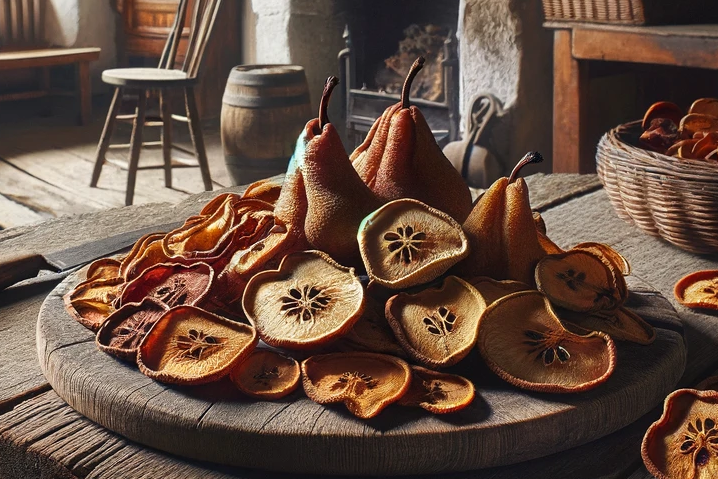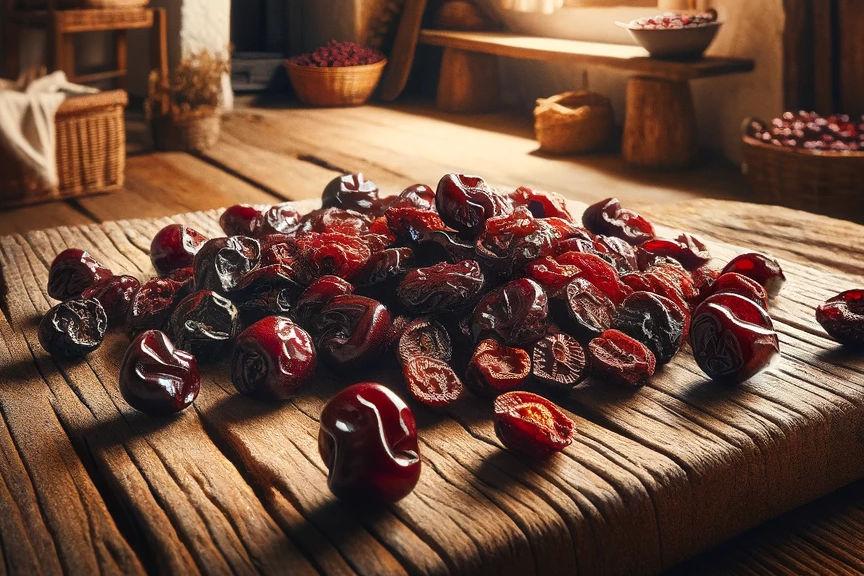Dried plums

Dried plums, often prized as dried fruit, offer a wealth of health benefits for humans. But what about when it comes to our dogs? At first glance, they might appear to be a sweet, nutrient-rich treat, but a closer look reveals a more nuanced picture. This article takes a closer look at dried prunes in a dog's diet, examining their benefits and potential risks.
What are prunes?
Dried plums, also known as prunes, are the result of the drying process of fresh plums. This process reduces the water content of the fruit, concentrating its natural sugars and nutrients. The result is a sweet, shelf-stable snack that contains a range of vitamins, minerals and fiber.
Benefits of dried plums for dogs
Natural source of vitamins and minerals
Dried plums are rich in vitamins such as vitamin K and vitamin A, which are important for bone health and vision. They also contain important minerals such as potassium, which supports heart health, and iron, which is necessary for blood formation.
Promoting digestive health
The high fiber content in dried plums can aid digestion and help prevent constipation in dogs. Fiber is important for maintaining healthy bowel function.
Antioxidant properties
Dried plums contain antioxidants that can help protect cells from free radical damage. This can contribute to the overall health and well-being of the dog.
Possible risks and disadvantages
High sugar content
As with other dried fruits, the sugar content in dried plums is relatively high. This can lead to weight gain and an increased risk of diabetes in dogs if consumed in excess.
Potential toxicity
Prune pits contain cyanide, a substance that is toxic to dogs. Although dried plums are usually pitted, it is important to watch out for possible residues of pits or skins.
Gastrointestinal complaints
The high fiber content can cause gastrointestinal discomfort in some dogs, especially if they are not used to a high-fiber diet. Symptoms may include diarrhea or bloating.
Recommendations for dog owners
If you want to offer your dog dried prunes, you should only do so in small quantities. Make sure the prunes are completely pitted and contain no added sweeteners or preservatives. It is always advisable to consult a vet before introducing new foods into your dog's diet.
Dried plums can be a healthy addition to your dog's diet in certain circumstances, but caution is advised. Their high sugar content and the potential risk of cyanide poisoning from prune pits require careful handling.
If you notice any signs of hypersensitivity or poisoning in your dog, you should see your vet immediately. We are not a substitute for a vet, but we try to be as accurate as possible. Every dog reacts differently and we recommend you get a second opinion or consult your vet if in doubt.
Stay healthy and take good care of your four-legged friend!😊
Similar to Dried plums
Dried apples are nothing more than fresh apples that have been deprived of their water content through heat or dehydration. This makes them more durable, crispier and sweeter. Dried apples can be...
Dried pears are the result of a dehydration process in which water is removed from fresh pears, either through natural sunlight or with the help of food dehydrators. This process preserves the fruit...
Dried cherries are the result of a dehydration process in which water is removed from fresh cherries, either by air-drying, using a dehydrator or by baking. This process preserves the fruit and...
Dried strawberries are made by removing the water content from fresh strawberries, either by air-drying, using a dehydrator or baking. This process preserves the fruit while concentrating its...



